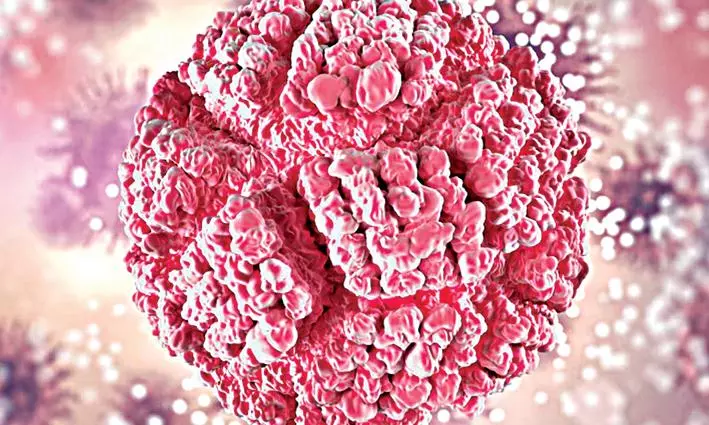In today’s digital age, where information moves faster than ever, a new and insidious challenge has emerged in cancer care — not a mutation in cells, but a mutation of truth. Across TikTok, YouTube, Instagram, and wellness blogs, a torrent of misinformation about cancer is flooding the public consciousness. The culprit? Emotionally-charged narratives, pseudo-spiritual ‘cures,’ viral anecdotes, and now, increasingly, artificial intelligence (AI)-generated content that mimics the tone and authority of licensed professionals.This deluge of falsehoods threatens to undo decades of progress in oncology, undermining public trust and complicating life-saving care. As the field advances into the era of immunotherapy, personalized medicine, and targeted therapies, oncologists are now battling on two fronts: the disease itself and the digital ecosystem that distorts its treatment.A Digital WildfireFrom turmeric touted as a cancer cure to fasting regimes that promise to ‘starve’ tumors, the misinformation circulating on social media often comes in the form of compelling personal stories and seemingly scientific claims. What’s worse, AI tools like ChatGPT clones, deep fakes, and content farms now produce misleading health videos at scale, exploiting algorithms that prioritize engagement over accuracy.“While platforms like TikTok and Instagram have democratized access to health information, they’ve also made it easier for unverified, sensationalized, or outright false claims to go viral,” says Dr. Utkarsh Ajgaonkar, Consultant — Surgical Oncologist, TGH Onco Life Cancer Centre.“Any rumours or false information that go viral within minutes can erode patient trust in evidence-based cancer treatments.”According to Dr. Ajgaonkar, this erosion in trust often leads patients down perilous paths—opting for home remedies instead of proven therapies, delaying consultations, or becoming skeptical of mainstream oncology altogether. The result: worsened prognosis, unnecessary suffering, and in some cases, preventable deaths.Trust In TumultArtificial intelligence (AI) presents a double-edged sword. While it holds immense promise for diagnostics, treatment personalization, and research, its misuse in content creation has added complexity to the misinformation crisis. AI-generated cancer advice videos — complete with synthetic doctors and soothing, authoritative voices —are blurring the line between fiction and fact.“The overwhelming volume of conflicting content can confuse patients, delay treatment decisions, and lead to skepticism toward medical advice,” Dr. Ajgaonkar warns. “To counter this, it is imperative for experts to actively engage on these platforms, promote accurate information, and encourage patients to consult doctors directly.”Digital FrontlineThe oncology community is far from passive in the face of this threat. Some oncologists are now stepping into the digital fray, producing their own educational content, debunking viral myths, and partnering with influencers to promote credible science.Dr. Salil Patkar, Consultant Medical Oncologist at Medicover Hospital, emphasizes the importance of collaboration between the medical field and tech platforms. “The oncology community can partner with digital platforms to flag false content, promote verified medical information, and prioritize credible sources,” he says. “By creating engaging, accurate content and participating in influencer collaborations, oncologists will be able to reach a large number of people and educate them. This will help curb the spread of false information and ensure timely intervention.”Platforms themselves must take responsibility, too. Currently, content moderation on TikTok or YouTube often lags behind or fails to recognize harmful health misinformation, especially when wrapped in spirituality or “natural” lifestyles. New AI moderation tools are being developed to detect dangerous claims, but enforcement remains inconsistent.Preserving the Doctor–Patient BondCountering misinformation doesn’t just require public awareness; it also demands nuanced communication within clinical settings. Many patients now enter consultations with a head full of conflicting advice from strangers online. Rather than dismiss these concerns outright, experts advocate for a compassionate, informative approach.“Oncologists can counter misinformation by encouraging open, non-judgmental conversations,” Dr. Ajgaonkar advises. “They should motivate patients to share online content they’ve seen, explain evidence-based treatments clearly, and guide them to refer to trusted websites instead of unverified posts.”Empathy, he notes, is key. A strong doctor–patient relationship grounded in trust and education can act as a powerful antidote to misinformation.Looking Ahead:A Call to ActionThe fight against cancer is no longer confined to laboratories and hospitals. It has entered the digital sphere, where misinformation metastasizes with alarming speed. To win this new battle, oncologists,…
